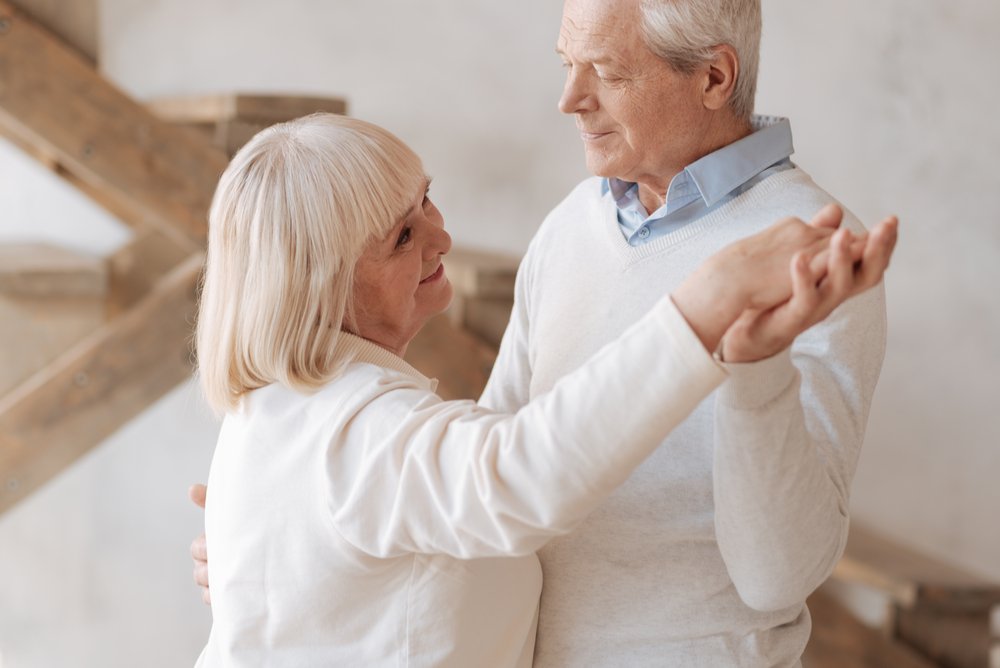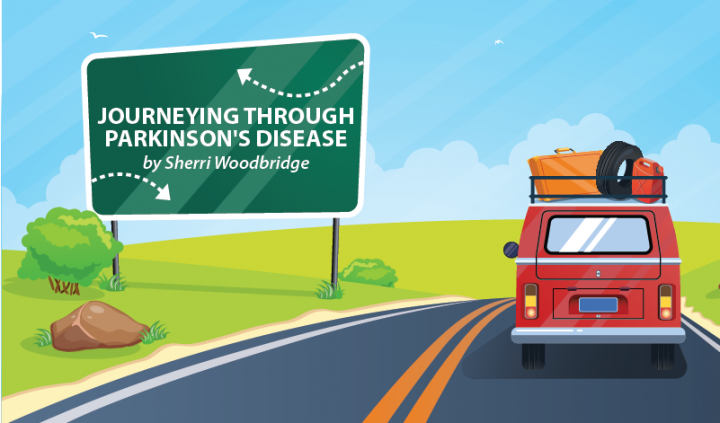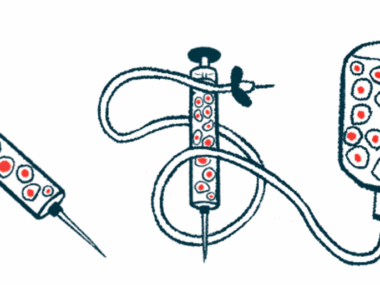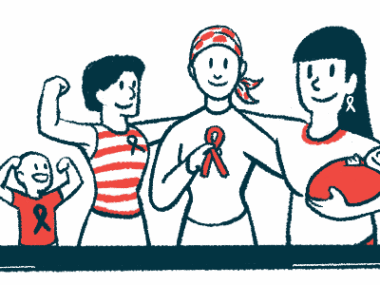Caregivers: We Wouldn’t Make It Without You
Written by |

Sitting in the neurologist’s office, my questions usually get answered, my fears often get calmed, my symptoms often are addressed. However, I sometimes wonder how my husband feels sitting there, listening in, adding his two cents worth. How does he feel about what he sees happening to me daily, what he might be missing, how he is coping, or going to cope?
Who asks questions of the caregiver? Where do they go to for support? Is there someone who can put their fears to rest? What should they (the caregiver) expect?
Because I’ve never seen an article address the subject much (although, I’m sure they’re out there), I thought I’d try. Since I am not the caregiver in my situation, I have researched some material to find some answers.
So, caregivers: What could be ahead on this journey with Parkinson’s for you?
You are in for some changes. Your loved one is going to be changing physically, emotionally, and mentally day by day. Because each case differs in how Parkinson’s disease or any chronic illness affects the patient, it is hard to say how much change will occur or how long it might take or last. This could very well cause fear, and understandably so.
You fear your spouse will no longer be that beauty or that hunk you once fell in love with and were attracted to. You no longer have those deep conversations you used to have. Their concentration level just isn’t there, and it’s frustrating you can no longer have talks like you used to under the stars. The cognitive issues that so often accompany Parkinson’s disease can be harder to handle than the physical changes. And so often, it may seem that the disease now outshines the person you once knew.
It’s OK to grieve because what you are experiencing is worth grieving over. Someone doesn’t have to have died to be dealing with grief. I grieved for years over my oldest son moving his family away in hopes of finding a better job so he could provide more for them. No one died, but the grief was (is) real. Your loved one may not be anywhere close to passing, but still, you grieve over the one you are slowly losing to a malicious disease.
When the disease is diagnosed, it can be confusing. A lot of misinformation can be floating around in cyberspace. It is best to get your information from a qualified source and to remember that each person wears PD differently. You may very well face family members and friends who don’t want to believe what is happening, and they will offer no help or support whatsoever. You may feel left alone to fight this battle. You may fear being alone to finish your life, a life that now looks so different from the one you and your loved one had dreamed of.
You may realize that the support just isn’t there. The support you expected or anticipated. Family and friends may stop calling or stopping by. They may not invite you to get-togethers as they once did. They may ignore you.
They just don’t understand. They can’t understand unless they walk the same path, or a very similar one.
It can be a pretty dismal place. But remember: Everybody’s situation is different. Everybody will respond to this disease differently, both as patient and caregiver.
What I wish to convey in this column is this: We couldn’t make it without you. I am sure it’s only going to get harder. And hard is hardly the word to describe a caregiver’s situation as they care for someone with Parkinson’s disease. But you chose, and still choose, to stay through the long haul even though you could have left and gone your own way.
I know of people whose spouse left when they were diagnosed with Parkinson’s disease. But you haven’t. You have chosen to hold tight to the promise you made at the altar or as a loyal friend. And we love you for it. And because we love you, please get some support for yourself. Don’t go this journey alone. Move closer to family if they can’t come to you. You do (and will) need each other.
And we, the needy patient, may get to a point where we can’t say it or show it, but we are so grateful and blessed to have you in our life, and we love you for all that you are: our caregivers.
***
Note: Parkinson’s News Today is strictly a news and information website about the disease. It does not provide medical advice, diagnosis or treatment. This content is not intended to be a substitute for professional medical advice, diagnosis, or treatment. Always seek the advice of your physician or another qualified health provider with any questions you may have regarding a medical condition. Never disregard professional medical advice or delay in seeking it because of something you have read on this website. The opinions expressed in this column are not those of Parkinson’s News Today or its parent company, Bionews Services, and are intended to spark discussion about issues pertaining to Parkinson’s disease.







Hannah
Sherri, this is an absolutely noteworthy topic. Thank you for writing about it.
Sherri Woodbridge
My pleasure!
Terri Lemon
Sherri:
I've never had anyone else express exactly how I feel. Thank you for letting me know that someone understands.
Sherri Woodbridge
Glad it was encouraging to you - thank you for your comment!
Sue
Your article couldn’t have come at a better time.For 6 years I have been the wife of a PWP but subtly I am becoming a carer. Only in small ways but it is happening and am finding it very hard.Having health issues of my own has not helped as stress is not good for either of us. Don’t get me wrong he is still amazing for a 70 yr old living with PD
If I ask him to do things he will do them willingly and very well,but he is starting to find it difficult to reason things out ,that before he would do without thinking. We have adapted to this by agreeing it’s payback time and instead of me being his helper and gofor , he is my helper and gofor,. The job still gets done with neither of us getting stressed.
Whilst I have always taken care of our finances ,it’s getting to the stage at times when he won’t answer the phone or make a phone call,or pay with a card in a shop,or go to the garage to fill up the car on his own. In other ways he’s brilliant. He will drive the 800km to go skiing as long as I ,plan the route map read,book the hotel and get the lift tickets.! He still skis as good as ever and I still can’t keep up with him on the bike.
What I thought was frustration I realise now is grief,and I must allow myself to grieve.Frustration is what Baz must feel.
Fortunately we have the wonderful support of friends who are so understanding and are always there for us, especially when I have a low moment.
Yes there are times when I wish we could turn the clock back ,and I have had moments when I would like to get away for a break for some me time, but in the end I know I wouldn’t enjoy being away on my own. He tells me he doesn’t want me to be his carer ,he wants me to be his wife , but easier said than done. So yes I will grieve but will not let the grief become frustration.
Sherri Woodbridge
Thank you for your thoughtful comment and reply - I’m glad it spoke to you.
Tj
Interesting how frustration or anger is only the indicator of an underlying emotion or feeling. Thank you for bringing this up I have been so short with weird lately and I don't understand where they come from lately.
Eileen Taylor
My husband (age 69) was diagnosed last year and while I have mourned the slow loss of the man I married, he is still my best friend and I have decided that I will not let this disease defeat me. I have decided that no matter what happens my husband will be treated with dignity and respect. I have decided that I will treat myself well and love myself enough for both of us. I have decided that I will not bury myself in this house but will treat myself to a girl's day out whenever I can. I remind myself daily that the changes happening to my husband are not his fault; they're his disease and we will get through it together. I know that it's going to get harder as this disease progresses and I can only hope that I'll find the support when I need it. Thank you for a wonderful article. I never thought I would be a caretaker to someone with Parkinson's but now that I am I'm glad to hear that we're appreciated.
Sherri Woodbridge
You are SO very appreciated!